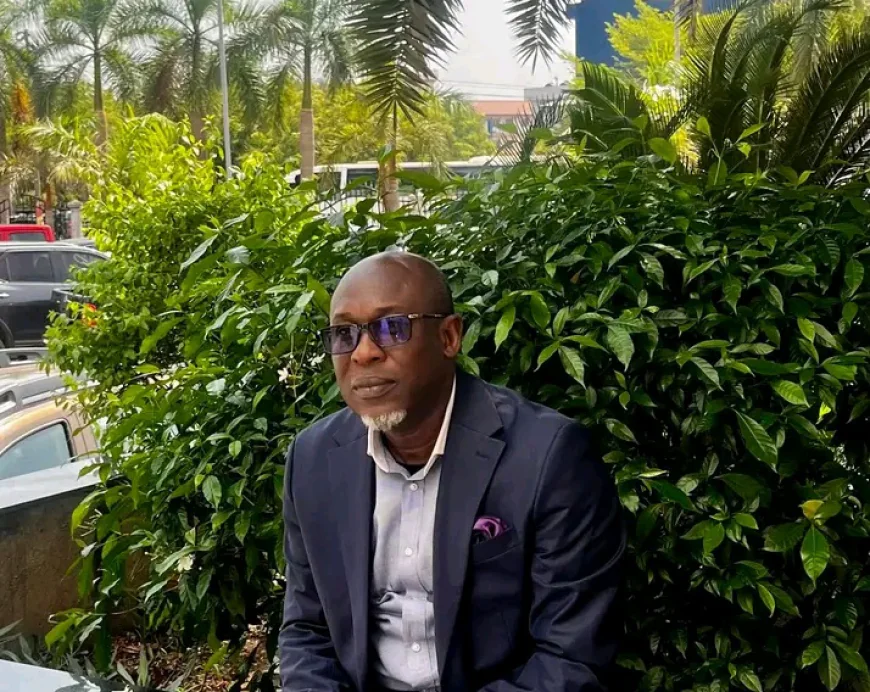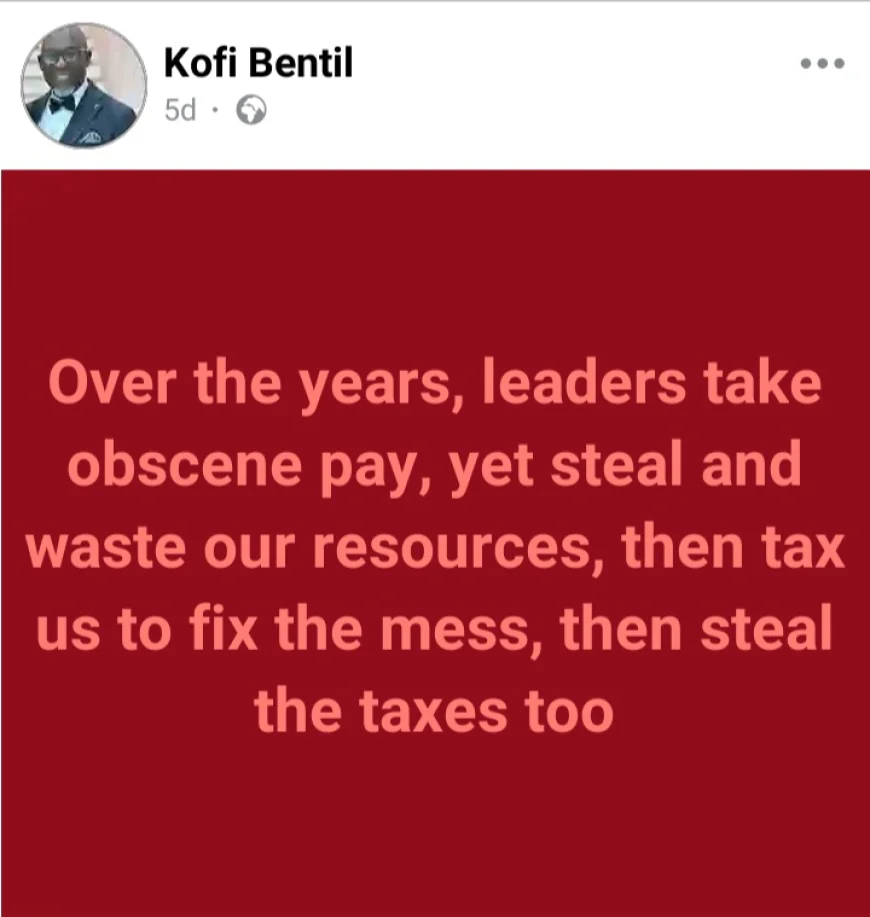Kofi Bentil Slams Leadership Over ‘Obscene Pay and Tax Theft’ in Fiery Facebook Post
Following the recently passed controversial Fuel Levy by Mahama's government, Kofi Bentil, vice president of policy think tank IMANI Africa, ignited a national conversation with a vicious rant at Ghana's leadership and the country's worsening tax culture.

Following the recently passed controversial Fuel Levy by Mahama's government, Kofi Bentil, vice president of policy think tank IMANI Africa, ignited a national conversation with a vicious rant at Ghana's leadership and the country's worsening tax culture.
The popular private attorney does not pull any punches in the impassioned Facebook entry:

"Over the years, leaders take obscene pay, yet steal and waste our resources, then tax us to fix the mess, then steal the taxes too".
Although this is a generic statement, Bentil's comment is broadly considered to refer to the newly imposed GH¢1 levy on petroleum products-a policy that has fallen in the criticism of both the public and the minority in Parliament.
The tax, projected to raise GH¢5.7 billion annually, has drawn intense criticism for its impenetrability and capacity to fuel economic hardship as well as inflation. Bentil's post captures Ghanaians' growing frustration at what the majority perceive as a cycle of misery for the people, enrichment of the elite class, and financial corruption.
Also Read: Top regions for exam malpractices are Bono, Bono East, and Ahafo, according to WAEC
The timing of his utterances has fueled speculation that IMANI Africa's vice president is sounding the warning on what he believes to be an age-old trend of leadership failure, where public servants steal public money, receive high wages and perks, and then place even more taxes on already suffering citizens to account for the resulting holes.
Political observers believe Bentil's message was a direct attack on the Mahama regime, which is currently under mounting pressure regarding the levy and other recent tariff increases, although he does not mention names.
The explosion of responses on social media since then shows that many people are applauding Bentil for expressing what they call "the painful truth" about governance in Ghana.
Bentil's comments have fueled an already raging fire in the national dialogue on tax policy, leadership ethics, and public accountability—and they may still inspire more voices to call for reform.


